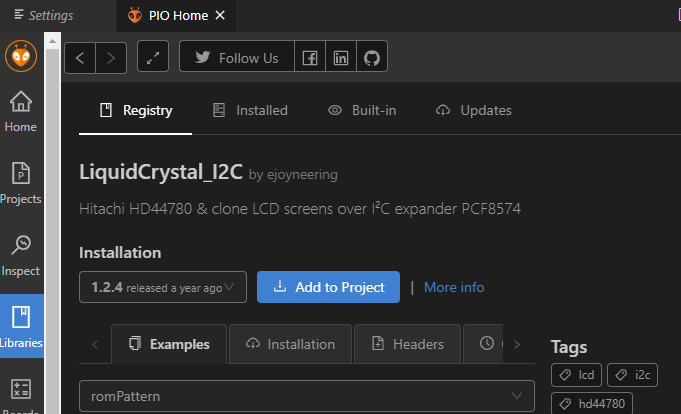I think the removal of that button is deliberate to push users to use the correct library management, that is, per-project managements via lib_deps instead of global libraries, which bring a bunch of problems with them (@ivankravets correct me if I’m wrong). So I strongly recommend that you use the intended PlatformIO library management system, which is already so easy by searching for the library you want and adding it via the “Add to Project” button.

Installing global libraries is still possible (but unrecommended) via the commandline. Open a PlatformIO CLI and execute the command
pio lib -g install path_to_zip_file
example:
pio lib -g install "C:\Users\Max\Downloads\Adafruit-GFX-Library-master.zip"